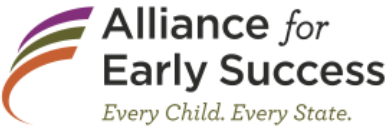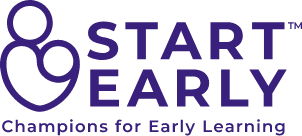About
The Partnership for Pre-K Improvement (PPI) Toolkit is designed to help state leaders assess and improve their state’s pre-kindergarten (pre-K) policies and implement high-quality pre-K that produces equitable opportunities for all children. The toolkit was developed with funding from the Bill & Melinda Gates Foundation.
The experience and expertise of pre-K systems leaders shaped the PPI Toolkit. It was developed in partnership with state leaders, advocates, and researchers in Oregon, Tennessee, and Washington. In addition, more than two dozen local, state, and national early learning program leaders, researchers, and policymakers also contributed valuable expertise and review of these tools and resources.
PPI was an effort led by three organizations: the Alliance for Early Success, Cultivate Learning at the University of Washington, and Start Early (formerly known as the Ounce of Prevention Fund).
Our desired impact with the PPI Toolkit is to provide state early learning administrators, researchers, and advocates with the tools and resources to support high-quality, equitable early learning systems, programs, and practices. This toolkit will support leaders to:
Engage Stakeholders and Build Partnerships
Help identify critical partners and collaborators to ensure a shared, aligned vision for equitable pre-K improvement.
Assess the System
Assess the quality of the state pre-K system by defining essential elements of high-quality pre-K and delineating a measurable progression of high-quality policies and practices.
Implement, Improve, and Advocate
Engage in continuous quality improvement with a strong focus on equity, periodically evaluating the implementation of policies and practices to make informed decisions for scaling policies and practices that work.
Designing the Implementation Development Map
The central tool of the PPI toolkit is the Implementation Development Map (IDM), a process-oriented tool designed to help state leaders implement high-quality, equitable pre-kindergarten (pre-K) systems and practices that produce positive early learning opportunities for every child.
The IDM can be used to describe, assess, prioritize, plan, and measure implementation of state pre-K policies and infrastructure along seven elements essential to equitable, high-quality pre-K: professional development, research-based curriculum, formative child assessment, high-quality teaching, data-driven decision making, instructional leadership, and political leadership. Each of the seven IDM elements consists of three parts:
- Key indicators of recommended research-based practices;
- Delineation of a developmental progression of these practices; and
- Assessment, through implementation data, of how each indicator lands in practice.
Intended User Benefits:
- Remaining focused on an equity agenda
- Sharing of resources and examples among states that can lead to improvement
- Identifying data blind spots and improving data systems
- Identifying what’s working, for whom, and under what conditions
- Identifying innovative practices for potential replication
- Examining biases that prevent equitable systems
The Implementation Development Map (IDM) was developed using a design-based implementation process. Iterative cycles involved stakeholders, including early learning state leaders, early learning experts, researchers, advocates, PPI partners (Start Early and Alliance for Early Success), and equity experts providing extensive reviews and feedback to create a tool for the pre-K field. Please see a full list of acknowledgements to all of those who generously gave their time and expertise to this effort. The goal was to model a process in which the tool can continue to be improved as states implement equitable policies and practices in the field using the IDM and provide ongoing evidence to illuminate what works, for whom, and under what circumstances.
IDM At-a-Glance
The Research Behind the IDM
The seven essential Elements included in the IDM are based on the research of Jim Minervino’s (2014) Lessons from Research and the Classroom: Implementing High-Quality Pre-K that Makes a Difference for Young Children and input from PPI state teams about the most direct path for state administrators to impact positive system reform. The elements are undergirded by extensive reviews of the peer-reviewed literature and policy documents such as early learning standards, the Head Start Program Performance Standards, and the National Association for the Education of Young Children (NAEYC) Program Standards.
Still, we recognize that the elements included in the IDM are not exhaustive; for example, family engagement and comprehensive services are also essential to robust pre-K systems. We also recognize that early learning professionals should be ensured equitable compensation for similar skills and training, and that pre-K is available to all eligible children.
Please use the links below to view the literature review summaries and methodology in more detail.
IDM Learning Methodology
IDM Literature Summaries
Mathematica Literature Scans
Contact Us
For questions about the Partnership for Pre-K Improvement Toolkit, please contact ppitoolkitinfo@uw.edu.


